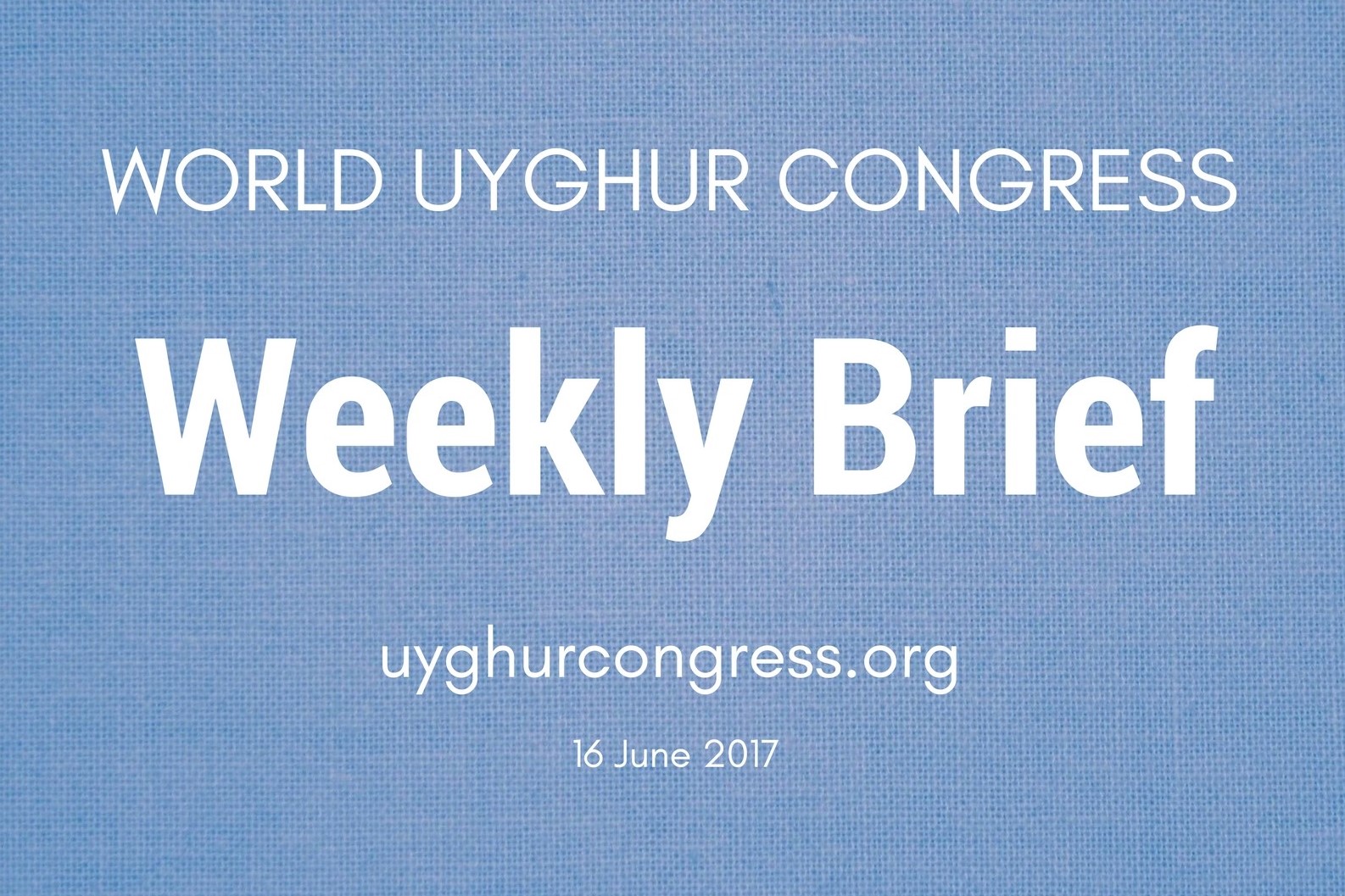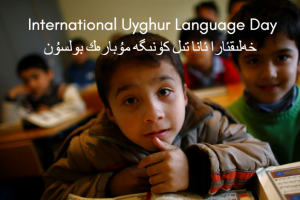Weekly Brief June 16th

World Uyghur Congress, 16 June 2017

Uyghurs Punished for Observing Ramadan in China
At least 100 people were fined or sent to reeducation classes ostensibly aimed at opposing religious extremism, merely for exercising their religious rights and freedoms by observing the holy month of Ramadan, Radio Free Asia (RFA) reported.
Chinese authorities have been imposing fines and other sanctions on those who refuse to break the dawn-to-dusk fast. Muslim Uyghurs, especially those who work in an official capacity, have been put under intense pressure to eat lunch and reject their religious duties. An RFA source stated that Uyghur Muslims who did not break the fast risked being fired or demoted for breaching party guidelines on religious observance. According to the RFA, Chinese officials even sent people to take Uyghur Muslims to lunch and brought food and drink to the fields to entice farmers to break their fast.
This is unfortunately not a new strategy, as Chinese authorities in East Turkestan have compelled restaurants to stay open and restricted access to mosques during Ramadan in previous years. However, these recent developments coupled with the revelation that Chinese cadres were sent to monitor families in their own homes during Ramadan indicates a significant escalation in repressive policies targeting Uyghurs.
Under the guise of countering terrorism, Beijing continues to put substantial pressure on the Uyghur population by denying them their basic right to freely practice the religion of their choosing.

Uyghurs Unite to Defend Linguistic Rights on Uyghur Language Day
In the face of an intensifying crackdown on their religious, cultural and linguistic rights in China, Uyghurs across the world joined together in solidarity to celebrate and defend their unique language on the 3rd annual International Uyghur Language Day. International Uyghur Language Day was launched in 2015 by the Uyghur Human Rights Project as a means to celebrate the vibrancy and richness of the Uyghur language and the contributions made to humanity by Uyghur scientists, philosophers and poets.
The Uyghur language has come under increased pressure from Chinese government policies. Despite its position as the official language of East Turkestan and legal guarantees in international and domestic law, the Chinese government has carried out ‘bilingual education’ policies prioritizing Mandarin Chinese in official settings which undermine the use of the Uyghur language and erodes Uyghur culture and identity. This forms part of a larger campaign to assimilate the Uyghur population by diluting their culture and identity.
In this context, the remembrance and recognition of Uyghur language and culture is even more important. Language binds together a community and is a crucial part of any culture and encapsulates the history and experience of a people. Uyghur Language Day presents the opportunity for the more than 10 million speakers of the Uyghur language to take pride in their language and culture and stands as a rallying point to resist Chinese assimilation efforts.

